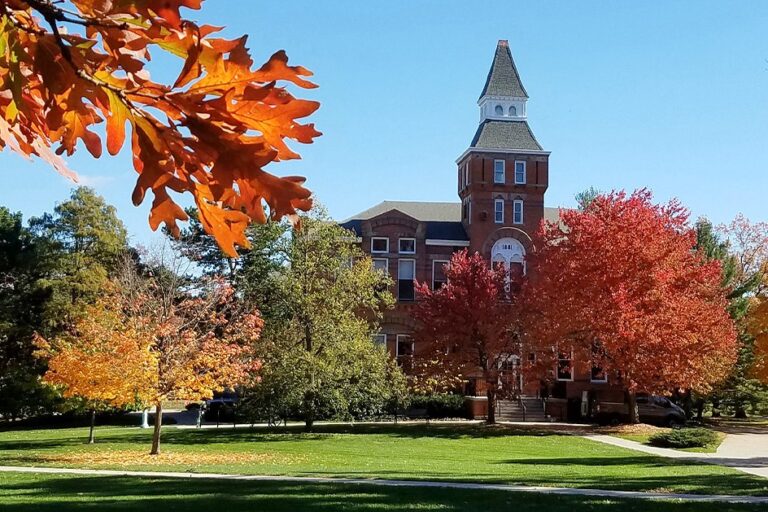
The MSU Latinx Film Festival (LxFF), scheduled for February 12-16, will offer five days of film, music, and art at various venues across the Michigan State University campus as well as throughout Lansing and East Lansing, giving attendees many opportunities to make meaningful connections with Latinx communities.
The biannual festival, which is celebrating its second iteration, will feature the work of artists, filmmakers, and musicians from both the United States and Latin America, featuring independent Latinx films, live music, and new media, such as virtual reality installations and 360° video.
This multifaceted artistic experience will offer ample opportunity to interact with filmmakers whose work is often difficult to access in the United States. Q&As with invited directors and discussions led by MSU faculty and students, local filmmakers, and community leaders will follow most screenings.
“Even though there is a great film culture in town and on campus, I felt there was a piece missing and that it would be possible to build upon the university’s tremendous resources to establish a Latinx film festival that would build bridges between MSU and the Latinx communities in the region.”
Scott Boehm, LXFF Founder and Assistant Professor of Spanish
The work of MSU College of Arts & Letters filmmakers also will be showcased at the festival, including the following films:
- The Head of Joaquin Murrieta, directed by John Valadez, Academic Specialist in the Department of English, to be screened on Thursday, February 13, at 3 p.m. in the MSU Library Green Room. A Q&A with Valadez will follow the screening.
- Teta, directed by Alexandra Hidalgo, Assistant Professor in the Department of Writing, Rhetoric, and American Cultures, to be screened on Saturday, February 15, at 10 a.m. in the Lansing Public Media Center.
- What Happens To A Dream Deferred, co-produced by Scott Boehm, LxFF founder and Assistant Professor of Spanish in the Department of Romance and Classical Studies, and Peter Johnston, Film/Digital Media Production Manager of the Film Studies Program, for the first MSU Latinx Film Festival, will receive an encore screening as part of The Wall: The Effect of Its Imposing Presence on Migrant Families on Thursday, February 13, from 4:30 to 6 p.m. in the MSU Library Green Room. The Wall is a compilation of short films on immigration issues distributed by Pragda, a festival sponsor and the leading educational distributor of Latin American, Spanish, and Latinx films.
Valadez and Hidalgo also will participate in a meet and greet with other invited directors from Chicago and San Diego on Saturday, February 15, at Casa de Rosado, 204 E. Mount Hope Avenue in Lansing.
“Even though there is a great film culture in town and on campus, I felt there was a piece missing and that it would be possible to build upon the university’s tremendous resources to establish a Latinx film festival that would build bridges between MSU and the Latinx communities in the region,” Boehm said.
Those bridges were built during the festival’s 2018 iteration which, in spite of it being a first-time film festival, featured consistently packed theaters. Through post-screening panels and Q&A discussions, community members, faculty, and students discussed the selected films and what they reveal about the cultures they represent, as well as what they reveal about those audiences.
The LxFF 2020 films are diverse in terms of the nationality, race, and gender of those in front and behind the camera. Selected films are from Colombia, Puerto Rico, Panama, Chile, Argentina, Brazil, Peru, Cuba, Paraguay, Costa Rica, and several from the United States. Genres span the spectrum from drama to comedy to thrillers, and the program includes several documentaries, short films, and even a family adventure movie.
Some of the films also feature indigenous languages.
“As part of an effort to bring awareness about the existence and state of indigenous languages around the world, we decided to include a wide selection of films featuring them,” said Claudia Berríos-Campos, a doctoral candidate in Hispanic Cultural Studies and one of the organizers of the festival.
Attendees can watch films like Patricia Ramos’ 7 Boxes, which features dialogue in Guaraní; Alvaro Delgado Palacios’ Retablo, in which Quechua and Spanish are spoken; and Ciro Guerra and Cristina Gallego’s Birds of Passage, which features the Wayúu language and culture.
“As part of an effort to bring awareness about the existence and state of indigenous languages around the world, we decided to include a wide selection of films featuring them.”
Claudia Berríos-Campos, Doctoral Candidate and a Festival Organizer
This year’s festival seeks to replicate its previous success while broadening the experience. Ozzie Rivera, Director of the Puerto Rican music and dance band Rican Struction, who will be performing on Friday, February 12, noted the added value of combining live music with film.
“Over the years, I have seen how the arts, particularly music and films, have been instrumental in crafting messages of hope and empowerment in times of great change. When used effectively, progressive music and film can deeply inspire and motivate us,” said Rivera, who has a decades-long activist history of nurturing Latinx community leaders in Detroit.
LxFF is an initiative of MSU’s Department of Romance and Classical Studies and is supported by MSU’s Office of Inclusion & Intercultural Initiatives, Pragda, MSU’s College of Arts & Letters, WKAR, Eli and Edythe Broad Art Museum, Lansing Public Media Center, East Lansing Public Library, The Robin Theatre, Lansing Brewing Company, and Capital Area Latina Youth. LxFF 2020 also received competitive sponsorship from the Michigan Film & Digital Media Office.
All film screenings, concerts, and receptions are free and open to the public, except at the Celebration Cinema venue where tickets are $5 each to see the films being shown there.
For more information, including the festival schedule, ticketing information for screenings at Celebration Cinema, and to RSVP for the opening reception, visit the MSU Latinx Film Festival website.
Written by Annie Dubois


